Florida Gym Insurance
8:30am - 5:00pm Mon-Fri
Will Reply in 15min*
Top Recommended Business Insurance Policies

Index
Contact Us
Phone
Location
6900 Tavistock Lakes Blvd, Suite 400, Orlando FL 32827
Owning a gym in Florida comes with its unique set of challenges, including understanding the insurance needs specific to this industry. Gym insurance is crucial for protecting your business, assets, and your clients. This article will walk you through everything you need to know about gym insurance in Florida, from the basics to the complexities of dealing with claims.
Understanding the Basics of Gym Insurance
Gym insurance is designed to protect fitness centers and their owners from a variety of risks. These risks can range from property damage to liabilities arising from accidents that may occur on the premises. Understanding the fundamentals of gym insurance will help you make informed decisions about your coverage options.
The Importance of Gym Insurance
Having gym insurance is not just easy, it is essential for several reasons: the health and safety of your clients, legal requirements, and financial protection against unforeseen events. In a state like Florida, where the number of gyms and fitness facilities is increasing, having appropriate insurance is crucial.
If an accident occurs and a client gets injured while using gym equipment, you could potentially face legal action. With proper insurance coverage, you can avoid significant financial losses and ensure your facility is adequately protected. Moreover, gym insurance can also cover losses resulting from natural disasters, such as hurricanes that Florida is known for. In addition to physical injuries, gym insurance can also provide coverage for incidents like theft or vandalism, which can severely impact your business operations and financial stability.
Types of Gym Insurance
There are various types of insurance policies available for gym owners. Some of the primary types include:
- General Liability Insurance: This is essential for covering third-party bodily injury claims and property damage.
- Property Insurance: This insures the physical assets of your gym, including equipment, furniture, and buildings.
- Professional Liability Insurance: This protects against claims related to negligent advice or services provided by trainers or instructors.
- Workers' Compensation: Essential if you have employees, this covers medical expenses and lost wages for work-related injuries.
In addition to these core policies, gym owners may also consider additional coverage options such as business interruption insurance, which can help replace lost income if your gym is temporarily closed due to a covered incident. Furthermore, specialized coverage like equipment breakdown insurance can protect against the costs associated with repairing or replacing malfunctioning gym machines, ensuring that your facility remains operational and your clients remain satisfied. As the fitness industry continues to evolve, staying informed about the various insurance options available can help gym owners adapt to changing risks and maintain a safe environment for their clients.

Florida Specific Insurance Regulations
Florida has certain unique regulations that impact gym insurance policies. Understanding these regulations is crucial for compliance and proper coverage.
State Requirements for Gym Insurance
While Florida does not legally mandate gym owners to have general liability insurance, it is highly recommended. Additionally, certain types of insurance (like workers’ compensation) are required if your gym has four or more employees. Meeting these requirements will help you avoid fines and legal issues down the road. Furthermore, many landlords or leasing agreements may require gym owners to carry liability insurance as a condition of their lease, adding another layer of necessity for coverage.
How Florida Laws Impact Your Gym Insurance
Florida is known for its unique legal landscape, particularly when it comes to personal injury cases. The state follows a comparative negligence model, which means that if a client gets injured, the level of fault can be distributed. This can impact the amount of money you might need to pay out in claims, making it all the more essential to have adequate coverage. Moreover, Florida's "No Fault" insurance laws can complicate matters further, as they allow for certain claims to be pursued without proving negligence, potentially increasing the risk for gym owners.
Additionally, some insurance companies in Florida may have specific clauses concerning hurricanes or floods. Given Florida's geographical location, it’s important to understand how such policies might affect your gym insurance. For instance, many insurers may require additional coverage for natural disasters, which can significantly increase your premiums. It’s also wise to consider the impact of seasonal weather patterns, as gyms may experience fluctuations in membership and revenue during hurricane season. Being proactive about these potential risks can help gym owners mitigate financial losses and ensure they are adequately protected against unforeseen events.
Choosing the Right Gym Insurance in Florida
Selecting the right insurance policy is crucial for safeguarding your business. It requires careful consideration of various factors to ensure that you’re adequately covered.
Factors to Consider When Choosing a Policy
When shopping for gym insurance, factors such as the size of your gym, the number of employees, types of services offered, and client volume will influence your insurance needs. Evaluating your individual business risks is also essential.
Additionally, check if the insurance policy covers activities specific to your gym. For example, if you offer classes, personal training, or specialized fitness programs, make sure you have liability coverage for those services as well. It’s also wise to consider the demographics of your clientele, as different age groups may present different risks. For instance, a gym catering primarily to older adults might need additional coverage for age-related injuries or conditions.
Understanding Insurance Quotes
When you receive insurance quotes, it's important to carefully read and understand the terms. Various factors contribute to the pricing, such as the size of your facility, claims history, and the number of members.
Don’t be afraid to negotiate or ask for more information. Compare quotes from different insurance providers to secure the best coverage for your needs. Remember, price shouldn’t be your only consideration; the quality of coverage and customer service are also key factors. Additionally, consider the insurer's reputation in the industry. Research reviews and testimonials from other gym owners to gauge their experiences with claims processing and support. A provider that is known for excellent customer service can make a significant difference when you need to file a claim or seek assistance with your policy.
Managing Your Gym Insurance Policy
Once you have your insurance policy in place, understanding how to manage it effectively is critical for long-term success. This involves knowing how to make policy changes and handle renewals.
Making Changes to Your Policy
As your gym grows or changes, so will your insurance needs. Whether you are adding new equipment, increasing your membership numbers, or expanding your services, it's important to update your policy accordingly.
Communicate with your insurance provider about any significant changes in your business operations to ensure you remain adequately covered. Failing to do so could create gaps in your insurance, leaving you vulnerable in the event of a claim.
Additionally, consider the implications of seasonal fluctuations in your gym's activities. For instance, if you offer specialized classes or seasonal promotions, these may require temporary adjustments to your coverage. Keeping an open line of communication with your insurer can help you navigate these changes smoothly, ensuring that your policy evolves in tandem with your business needs.
Renewing Your Gym Insurance
Insurance policies typically need to be renewed annually. During the renewal process, evaluate your coverage needs to ensure they still align with your business. Take this opportunity to review any changes in your gym, including new equipment, increased membership, or updated regulations that may require adjustments to your policy.
Consulting with your insurance agent during this time can help you understand the best options available and any necessary changes to prevent coverage gaps.
Moreover, it's wise to compare your current policy with other options in the market during the renewal period. Insurance providers often update their offerings, and you may find a better deal or more comprehensive coverage elsewhere. This proactive approach not only ensures you get the best value for your investment but also reinforces your commitment to protecting your business and its members. Remember, the goal is to create a safety net that supports your gym's growth while minimizing risk.

Dealing with Insurance Claims
Managing insurance claims can be stressful; however, knowing how to file a claim and what to do in case of disputes can simplify the process. Understanding the nuances of your policy and the claims process can empower you to navigate these challenges more effectively, ensuring that you receive the benefits you are entitled to without unnecessary delays.
How to File a Claim
If an incident occurs and you need to file a claim, it is crucial to act quickly. Document the incident thoroughly, including photographs and witness statements. Reach out to your insurance provider as soon as possible to report the claim and provide required information. Be prepared to provide details such as the date and time of the incident, the parties involved, and any relevant policy numbers. This initial communication sets the tone for your claim and can significantly influence the speed and efficiency of the claims process.
Follow up regularly to ensure the claims process is progressing, and keep written records of all communications for future reference. It can also be beneficial to familiarize yourself with the typical timelines for claims processing in your specific insurance sector, as this knowledge can help you gauge whether your case is moving at a reasonable pace. If you notice any delays, don't hesitate to reach out to your claims adjuster for updates and clarification.
What to Do in Case of Insurance Disputes
If disagreements arise during the claims process, remain calm and document everything. Review your insurance policy to understand what is covered and to ensure that you followed the correct claims process. It can be helpful to highlight key sections of your policy that pertain to your claim, as this will allow you to reference specific language when discussing the matter with your insurer. Additionally, gathering supporting documentation, such as repair estimates or medical bills, can strengthen your position and provide clear evidence of your claim's validity.
In case of disputes that cannot be resolved through normal channels, consider seeking assistance from an insurance adjuster or even legal counsel specializing in insurance law. This will help safeguard your interests and ensure you get the coverage you deserve. Engaging a professional can provide you with insights into your rights and obligations, as well as strategies for negotiating with your insurer. Furthermore, many insurance policies include clauses that outline the steps for dispute resolution, such as mediation or arbitration, which can serve as alternative pathways to settle disagreements without resorting to litigation.
Frequently Asked Questions about Florida Gym Insurance
Many gym owners have similar inquiries regarding their insurance needs. Addressing these questions can help clarify doubts and provide valuable insights.
Common Misconceptions about Gym Insurance
One common misconception is that gym insurance is optional. While it is not always legally required, going without coverage can lead to significant financial risks. Another is that all insurance policies are alike; however, coverage can vary widely based on provider and individual circumstances. For instance, some policies may include liability coverage for injuries sustained on your premises, while others might not cover equipment damage or theft. Understanding these nuances is crucial for gym owners to ensure comprehensive protection.
Essential Tips for Gym Owners
To ensure you’re well-equipped with the right insurance, keep these tips in mind:
- Consult with an experienced insurance agent who understands the fitness industry.
- Regularly review and update your insurance as your gym changes.
- Document everything related to claims or incidents thoroughly.
- Educate your staff about the importance of safety and risk management.
Investing in gym insurance will not only protect your business but also give you peace of mind, allowing you to focus on what you do best: helping your clients achieve their fitness goals. Additionally, consider implementing a robust risk management plan that includes regular safety audits and staff training sessions. This proactive approach can significantly reduce the likelihood of accidents and claims, ultimately lowering your insurance premiums over time. Furthermore, fostering a culture of safety within your gym can enhance member satisfaction and retention, as clients feel more secure in their workout environment.








